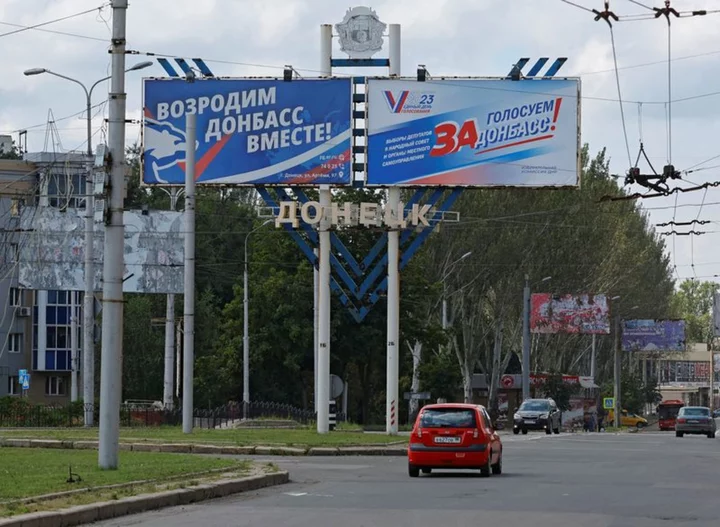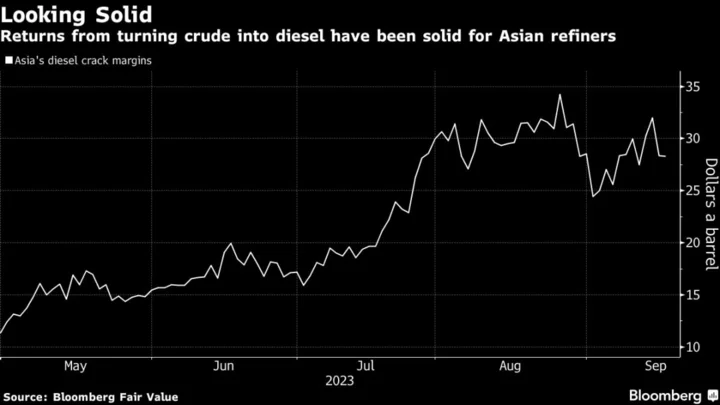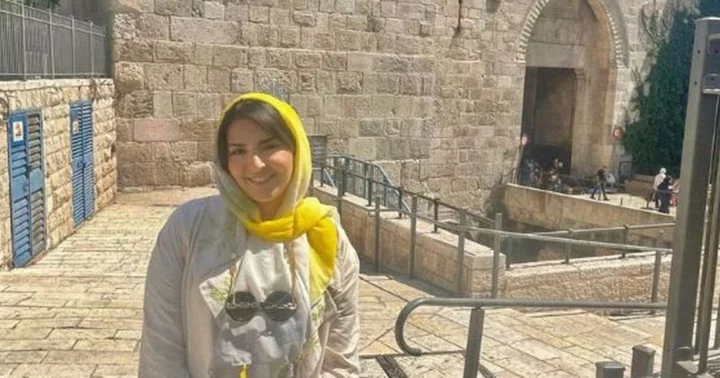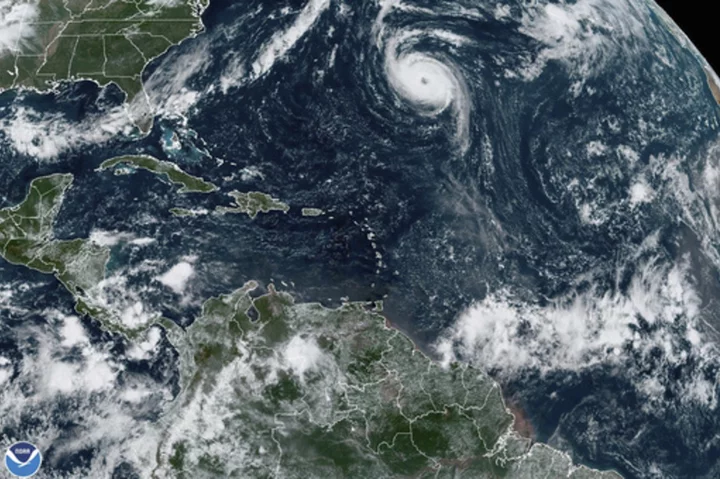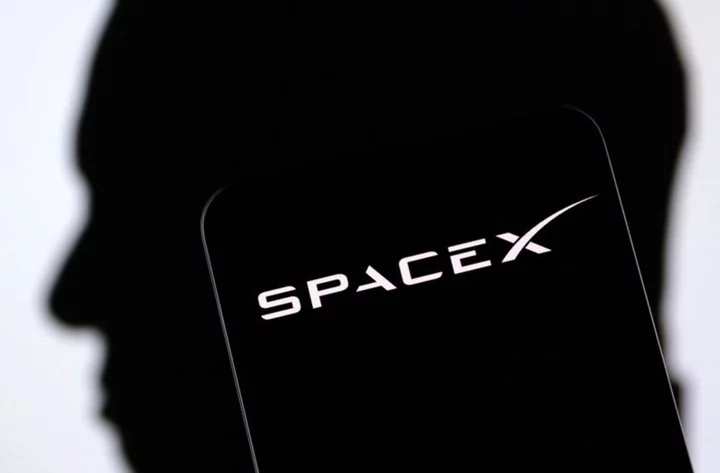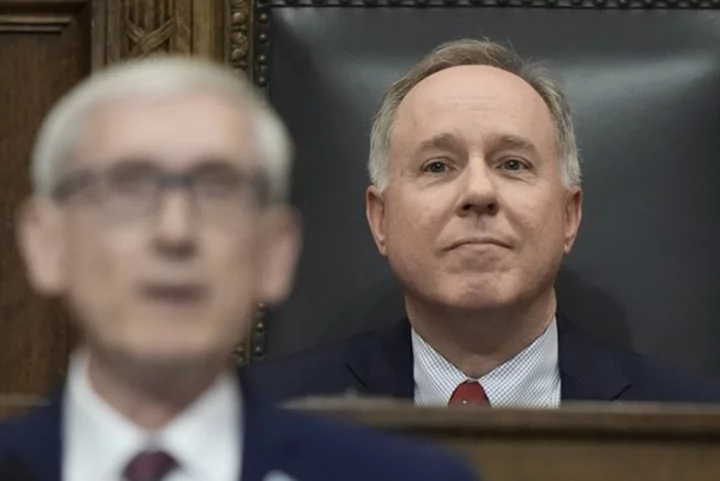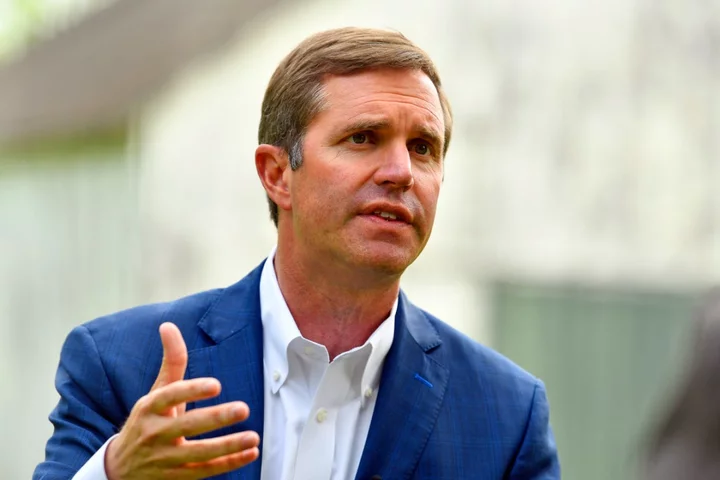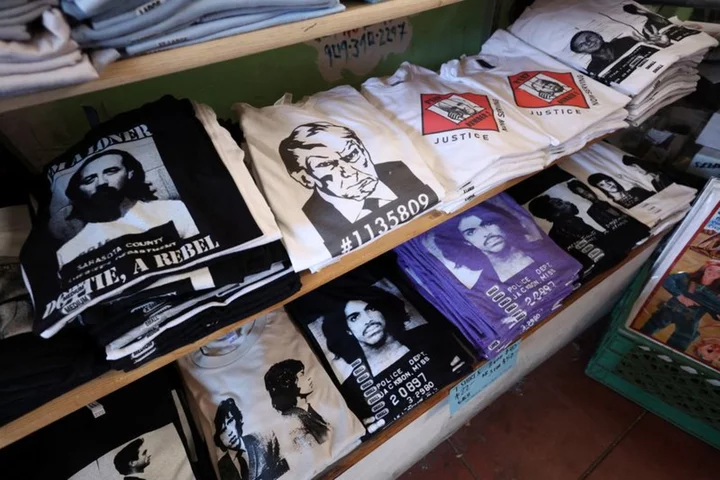By Felix Light and Felix Hoske
Russian-installed authorities began holding regional elections on Thursday in parts of Ukraine Russia claimed as its own last year, seeking to cement Moscow's authority in what it calls its "new territories" despite the ongoing conflict.
Russia does not fully control any of the four regions where the votes are being held - Donetsk, Luhansk, Zaporizhzhia and Kherson. Along with Crimea - annexed by Moscow in 2014 - they make up almost a fifth of Ukraine.
Three quarters of countries at the United Nations General Assembly condemned what they termed Russia's "attempted illegal annexation" of the four regions in a vote last October.
Ukrainian officials say the elections are also illegal and show why it is impossible to hold any peace talks with Moscow until Russia withdraws all its troops from Ukrainian territory.
In all four regions, Moscow's handpicked governors, a mix of veteran pro-Russian politicians and others known only locally, are seeking full terms of office in the polls, which conclude on Sept. 10, when Russia holds regional polls.
The governors are all running with Russian President Vladimir Putin's endorsement having joined the Kremlin's United Russia bloc with fanfare in recent months and they face only nominal opposition.
In the Donetsk region port city of Mariupol, which was taken by Russia in May 2022 after a grinding, months-long siege, Reuters saw electoral officials set up a temporary polling booth on Thursday in the courtyard of a residential complex.
A trickle of residents came out to cast their ballots, showing newly-distributed Russian passports to officials while police officers stood by.
Many people have fled Russian-occupied territory, which has suffered some of the worst damage of the conflict.
The exiled Ukrainian mayor of Mariupol, Vadym Boichenko, told Reuters people from the city, which he escaped on Feb 26, 2022, two days after Russia's invasion, had told him there were no voter lists and no candidate lists.
"It is clear that there is no trust from the people toward this process, which should be called a sham election," he said in an interview in Kyiv, adding that he expected a repeat of what he said had happened in annexation votes last year.
"They (Russian-installed officials) are going to walk from apartment to apartment, as they did before, talking to people. There are two soldiers standing nearby, carrying machine guns, and they tell the people that they must vote," he said.
Reuters could not immediately verify his account.
MOSCOW EXPECTS BIG WIN
Voting also began on Thursday in the Zaporizhzhia region, whose Russian-installed governor Yevgeny Balitsky held talks with Putin in August shown on state television in which he said said the province would return an emphatically pro-Kremlin vote.
"We are sure that United Russia will receive the result it deserves in the elections," said Balitsky, a former pro-Russian MP in the Ukrainian parliament whose region is at the forefront of the ongoing Ukrainian counteroffensive. Only around 80% of it is controlled by Russia.
Russian-installed authorities in the four regions extended voting over multiple days, saying it was necessary to reduce danger to voters.
Data published by a Kremlin-controlled pollster in early August showed United Russia candidates drawing at least 80% of the vote across all four regions. According to independent Russian news site iStories, only around half of United Russia’s candidates in Kherson and Zaporizhzhia regions are locals, with the balance being drawn from Russia itself.
Last year, Moscow said the four territories returned overwhelming votes in favour of annexation by Russia, in "referendums" Ukraine and its Western allies said were fraudulent.
(Reporting by Felix Light and Felix Hoske; editing by Philippa Fletcher)

